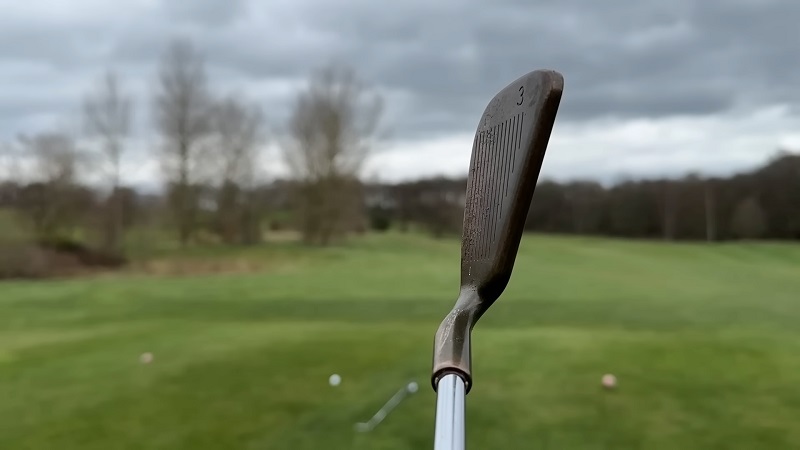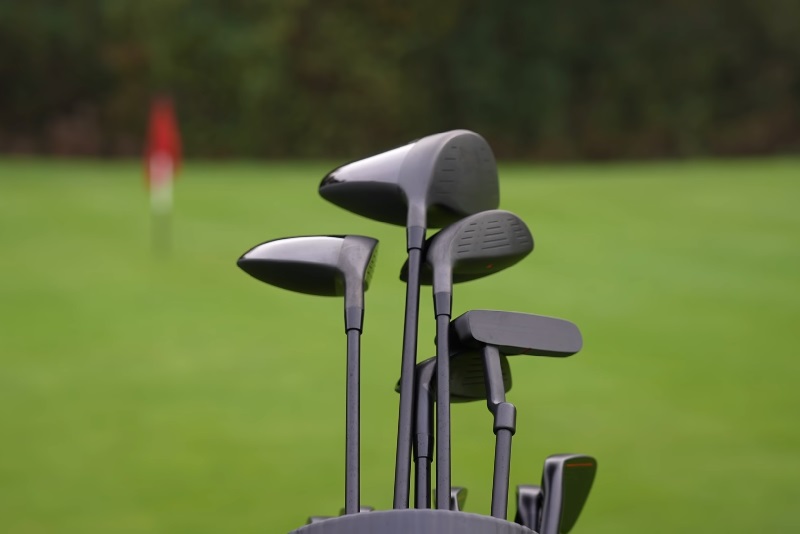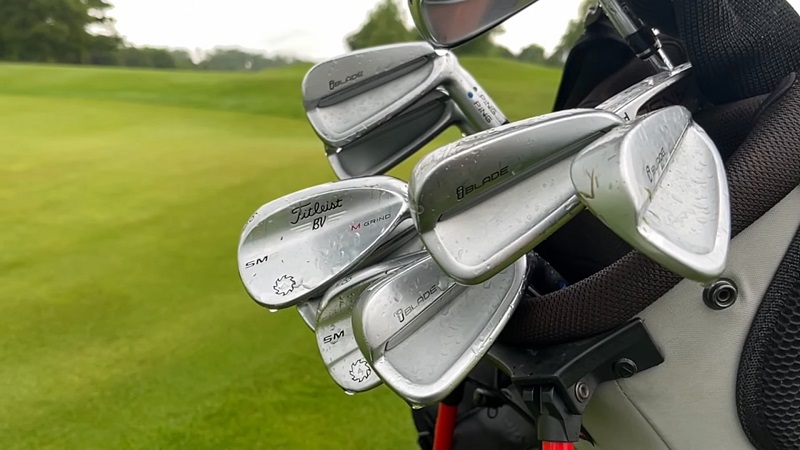Golf clubs are the lifeblood of a golfer’s game and can be an expensive investment. As such, you may want to get as much use out of them as possible before needing to replace them.
But just how long do golf clubs last? In this blog post, we will take a closer look at the lifespan of golf clubs and what affects them. You’ll learn which factors determine how long your current set will last, tips on extending their life, and when you should start thinking about replacing your current set with new ones!
Read more:
- How To Store Golf Clubs Properly For Optimal Protection
- How To Clean Golf Clubs Properly To Keep Last Longer?
How Long Do Golf Clubs Last?

The average lifespan of golf clubs can vary greatly depending on the type of club and how often you use it. Generally, a driver may last up to 10 years, while an iron set could last as long as 12 years. These estimates are based on regular play and proper care, such as cleaning and storing them in a dry area away from moisture.
Using the correct shaft flex for your swing can help reduce wear and tear on your clubs, leading to a longer life expectancy. Ultimately, it’s up to you as a golfer to decide how often you need to replace your clubs in order to maintain optimum performance. Doing regular maintenance on your golf clubs will ensure that they last as long as possible, so you can keep playing your best.
- Wood Clubs: 5-10 years.
- Iron Clubs: 8 – 12 years.
- Driver: 3 – 5 years.
- Wedges: 5 – 10 years.
- Hybrid: 5 -10 years.
- Putter: 12 – 15 years.
What Are The Factors That Affects The Lifespan of A Golf Club?

The lifespan of a golf club is mainly determined by the frequency and intensity of use, as well as its quality. Clubs with higher-quality materials are more durable and can last longer than those made from cheaper materials. Additionally, the construction process for a golf club affects how long it will last. For example, if clubs have been forged or cast using a certain method, they may last longer than those created with other methods.
Environmental factors can also have an impact on the lifespan of golf clubs. If clubs are regularly exposed to extreme temperatures or moisture, this can cause them to degrade more quickly over time. In addition, it’s essential that golfers store their clubs in a dry and temperature-controlled area, as humidity can affect the lifespan of golf clubs.
Finally, regular maintenance is important to ensure that golf clubs last as long as possible. This includes:
- regularly checking for wear and tear,
- cleaning the grooves on the club face, and
- keeping grips in good condition.
These simple steps can help extend the life of golf clubs, allowing them to provide years of use.
The overall lifespan of a golf club ultimately comes down to how well it is cared for and used. By taking the appropriate steps to maintain their clubs and understanding their own playing style, golfers can maximize the longevity of their equipment. Investing in quality materials, taking proper care of clubs, and understanding environmental factors are all important to ensure that golf clubs last as long as possible.
Signs That Your Club Requires A Replacement
As with all things, your beloved club may come to a point where it needs to be replaced. However, it can sometimes be difficult to pinpoint when that time is.
One of the most telltale signs is extensive wear and tear, such as splintered wood or frayed fabric, is one of the most telltale signs. Another indicator is a decrease in performance or effectiveness, such as a bent shaft on a golf club or a warped blade on a hockey stick. Additionally, if your club is outdated or has become obsolete compared to newer models, it may be time to start looking for a replacement.
While it can be tough to say goodbye to a trusty club, remember that investing in a new one can ultimately lead to improved performance and enjoyment of your favorite activity.
Tips To Extend The Life Of Golf Clubs

Ensure Proper Care
Just like any other sports equipment, golf clubs require proper care to maintain their maximum performance and extend their life. Before and after each round of golf, ensure that your clubs are wiped down with a damp cloth and stored in a safe place. This can help protect them from dirt and moisture, which can damage the club over time.
Use a Club Cover
When you’re traveling, using a club cover can help protect your clubs from dings and scratches that could occur during transport. This is especially important if you are going to be flying or if you plan on playing in inclement weather. Using a club cover can also help keep your clubs from rattling around during transport, which can reduce wear and tear.
Check the Grips Regularly
The grips on your clubs are an important part of the game, so it’s important to check them regularly and ensure they are in good condition. If you notice any cracks or signs of excessive wear, it’s important to replace them as soon as possible. New grips can help improve your game and extend the life of your clubs.
Don’t Overuse Your Clubs
Playing with worn-out or overused clubs can make the game more difficult and can also cause additional wear and tear on the clubs themselves. If you use a particular club more often than the others, it may be time to consider replacing it. It’s always a good idea to give your clubs a break occasionally and invest in new ones when necessary.
Have Your Clubs Professionally Serviced
Professional golf club services can help extend the life of your clubs by cleaning and polishing them, replacing worn-out parts, and checking for any necessary repairs. Having your clubs serviced regularly can help ensure they remain in top condition and last longer.
Practice the Proper Swing Technique
One of the most important things you can do to extend the life of your golf clubs is to practice proper swing technique. This means using a light grip, keeping your arms straight and using the right amount of force during each swing. Practicing proper swing techniques can reduce the wear and tear on your clubs over time.
Invest in Quality Clubs
When purchasing new golf clubs, investing in quality products is important. This means looking for clubs that are made from durable materials and designed to last. Quality clubs may cost more than some of the cheaper alternatives, but they can save you money in the long run by lasting longer and performing better.
How Often Should I Replace My Golf Clubs?
The answer to this question depends on various factors, including the type of clubs you own and how often you play. Generally, most golfers should replace their irons at least every two years and their woods every three years. If you’re an avid golfer who plays regularly, you may need to replace your clubs more often. If you’re a casual golfer who only plays occasionally, it may be possible to go longer periods without replacing your clubs. Ultimately, it’s important to assess the condition of your clubs periodically and replace them as needed.
Conclusion
The lifespan of a golf club depends on several factors: the frequency with which you play and practice, the quality of your clubs, and how well you maintain them. Of course, some lucky players will find their set last for years. Others may need to replace their equipment more frequently. Understanding your equipment’s lifespan will enable you to invest in what’s best for you and get the most out of your game.
Remember: when it comes to golf clubs – shop wisely, practice regularly, and routinely check for any signs of wear and tear! With this simple advice, you’ll surely get the most from each round. So take care of your clubs and enjoy every moment at the course!
FAQs
What Are Some Signs That My Golf Club Needs To Be Replaced?
Signs that your club requires a replacement include cracks or dents in the club head, excessive rusting on metal clubs, loose screws or bolts, worn-out grips and tees, a warped or bent shaft, or an overall decrease in performance.
What Steps Can I Take To Extend The Life Of My Golf Clubs?
Steps that you can take to extend the life of your golf clubs include getting fitted for clubs, storing them appropriately, cleaning and maintaining them regularly, replacing worn-out parts, keeping them in a golf bag, being mindful of your swings and avoiding leaving them in the car.
Can I Use A Regular Cleaning Solution For My Golf Clubs?
It is not recommended to use regular cleaning solutions for golf clubs as these can damage the protective coating and wear away at the material. Instead, use a club-specific cleaning solution that is designed for use on golf clubs.
Is It Important To Get Fitted For Golf Clubs?
Getting fitted for golf clubs can be very beneficial as the correct size and type of club will help you perform better on the course. Also, properly fitted clubs can help reduce the risk of injury.
Is It Important To Protect My Golf Clubs From Extreme Temperatures?
As excessive heat or cold can cause damage to clubs over time, it is important to store and transport your clubs in a temperature-controlled environment. Also, keep your golf clubs out of a hot car for long periods.
Is It Bad To Leave Golf Clubs In A Hot Car?
It can be damaging to leave golf clubs in a hot car. The high temperatures can weaken the glue that holds the club parts together and can also cause warping or bending of the club shafts. It’s best to store your clubs in a cool, dry place to maintain their longevity and performance.
Is It Okay To Store Golf Clubs Outside?
Storing golf clubs outside is not generally recommended. Exposure to fluctuating temperatures, humidity, and potential moisture can degrade the clubs’ materials and affect their performance. Always store golf clubs in a dry, temperature-controlled environment to ensure their longevity.
How Do You Store Golf Clubs For The Winter?
To store golf clubs for the winter, clean them thoroughly to remove any dirt or grime, dry them properly to prevent moisture damage, and then place them in a golf bag. Store the bag in a dry, temperature-controlled environment, away from direct heat sources and extreme cold. A coat of light oil on iron club faces can prevent rusting during the storage period.


